Get posts by email
Christmas for Solstice
December 21, 2017
One of the blog series I wrote this year was an Evolving Journey of Faith. The journey, and my faith, keeps evolving but I do intend to wrap up that series with two more posts. They are partially written but I'm lacking steam to finish the edits and finally publish. One day.
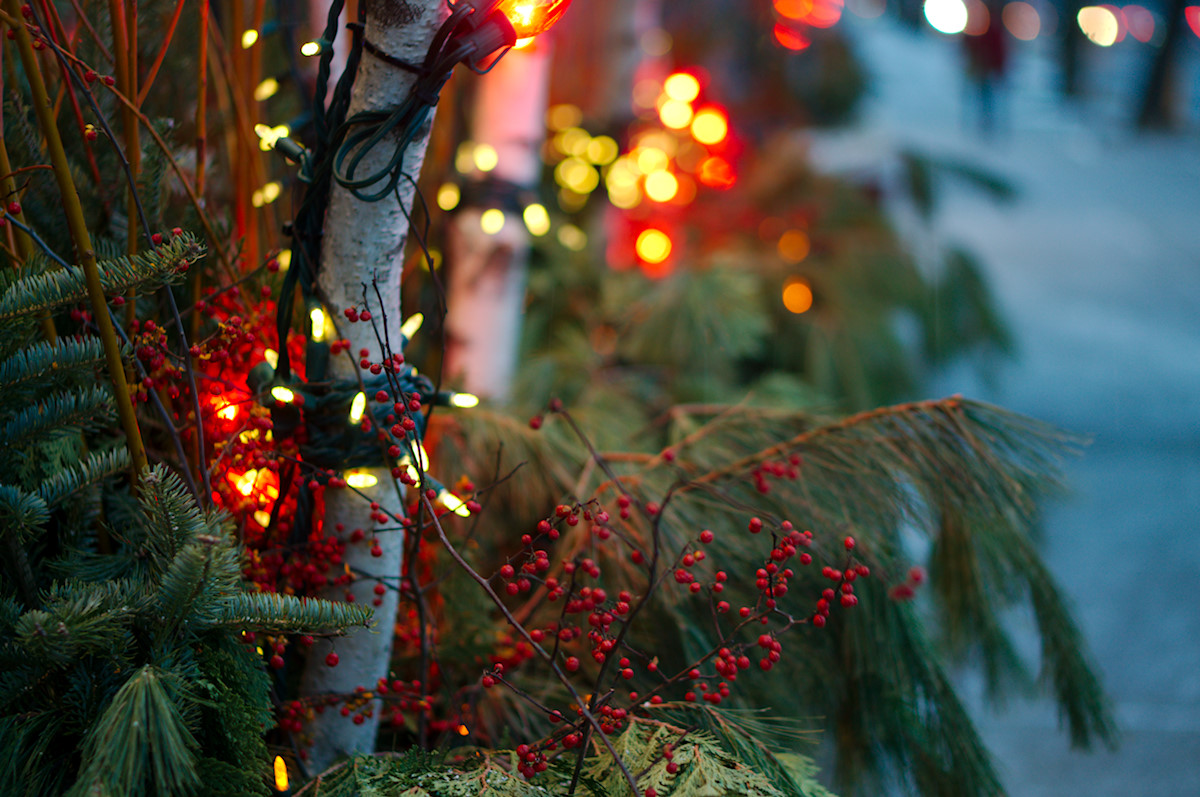
One of those posts is a resource list for those experiencing their own evolving journey within the Christian faith. It started as a short list of a couple podcasts I listen to but has grown to a longer list of podcasts, books, writers, thinkers, pastors, theologians, and layfolk you'll want to read or follow if you are processing your own faith in different ways.
One of the podcasts on that list is The Robcast by Rob Bell. Once upon a time (and probably still in many Evangelical circles) Rob Bell was a controversial person. Having grown up in the charismatic tradition (fundamentalist according to some definitions) I can see why people would think this.
He questions a lot of the doctrine, theology, and practice of the Evangelical tradition (a very young tradition I should point out). Rob Bell isn't everyone's cup of tea and he's not a "meaty" scholar in his writings or teachings. I don't have to think really hard when I listen to him or read his books. (Except when he interviews deep thinkers, which I always appreciate.)
What Bell offers me and so many others is an experience of life-giving, imaginative, and expansive conversations about faith. I feel he presents a "what if" of possibilities. The way I approach homeschooling, with an open hand, open heart, and open mind, is how Bell has shown me to approach faith.
One of the things I'm learning to do in my life, and in my faith, is follow life-giving energy. Follow the ideas that are stirring my imagination, ideas that make me hopeful, ideas that help me fall further in love with both God and humanity. The ideas that taste like living water, ideas that make me want to sing praise in the town square.
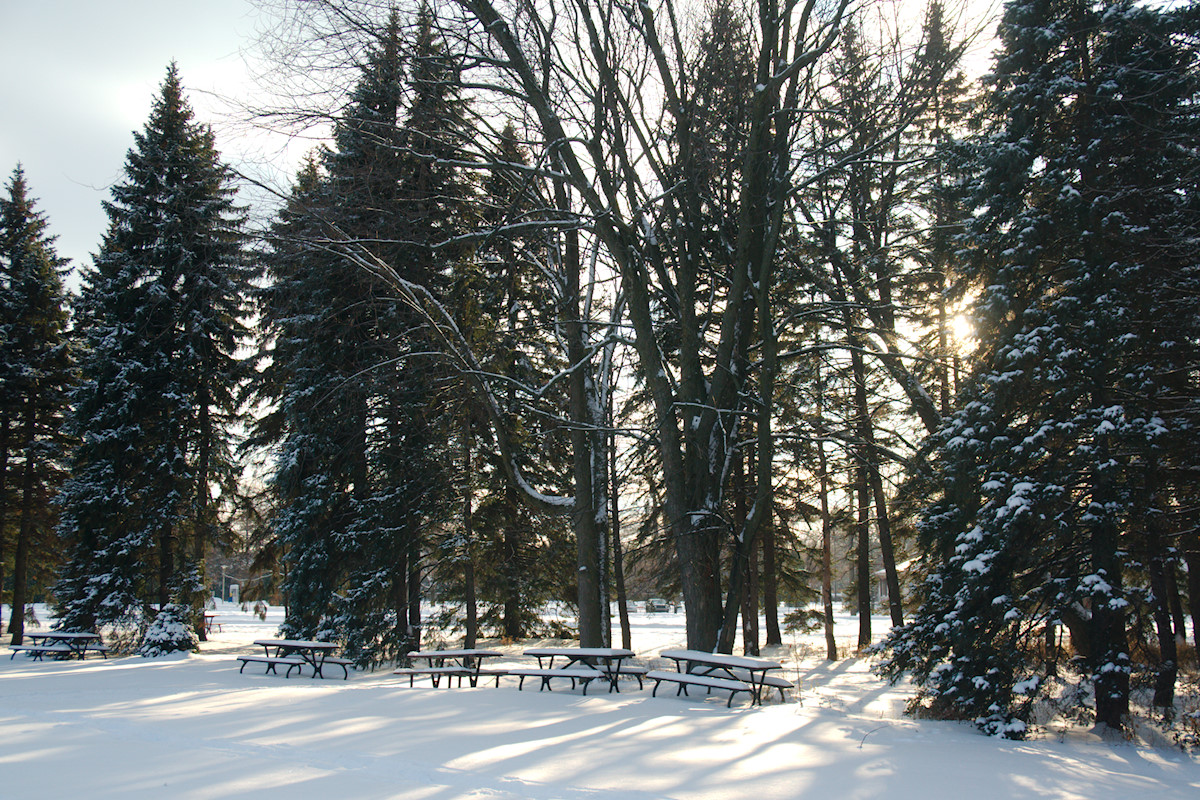
Bell's ideas, and his presentation of the gospel, are like that for me. Me, the anxious, security-minded (uptight) Type 6, cross all your T's and dot all your I's person, finds the joy, enthusiasm, and optimism of Bell's Type 7 way of viewing the world to be an antidote to my own tendency to fear, exclude, and assume the worst.
The Robcast is a podcast for anyone interested in spirituality, or looking to answer the "what's going on here?" question. Sometimes Bell talks about the Jesus tradition and how we might view personal situations, current events (ok, the US political situation), life and all its struggles through the lens of that wisdom. My favorite podcasts are anything in the wisdom series, interviews with Pete Rollins, Richard Rohr, and Alexander Shaia.
I wouldn't consider his podcast explicitly Christian, even though, as far as I'm concerned he's always talking about the gospel, but not the gospel you may be familiar with or have been taught as a child.
I didn't sit down to write a RobCast endorsement. (And for the record, sometimes a podcast episode feels low on substance, or his writing style gets annoying - but these are small quibbles for the amount of good he offers the world and how much I get from his work.) Bell's contribution to the conversation is one of many that I find so helpful and life-giving at this point in my life. No wonder it's taking me so long to write that resources post.
The point of introducing you to Rob Bell is to mention his recent interview with Alexander Shaia on the Mythic Power of Christmas.
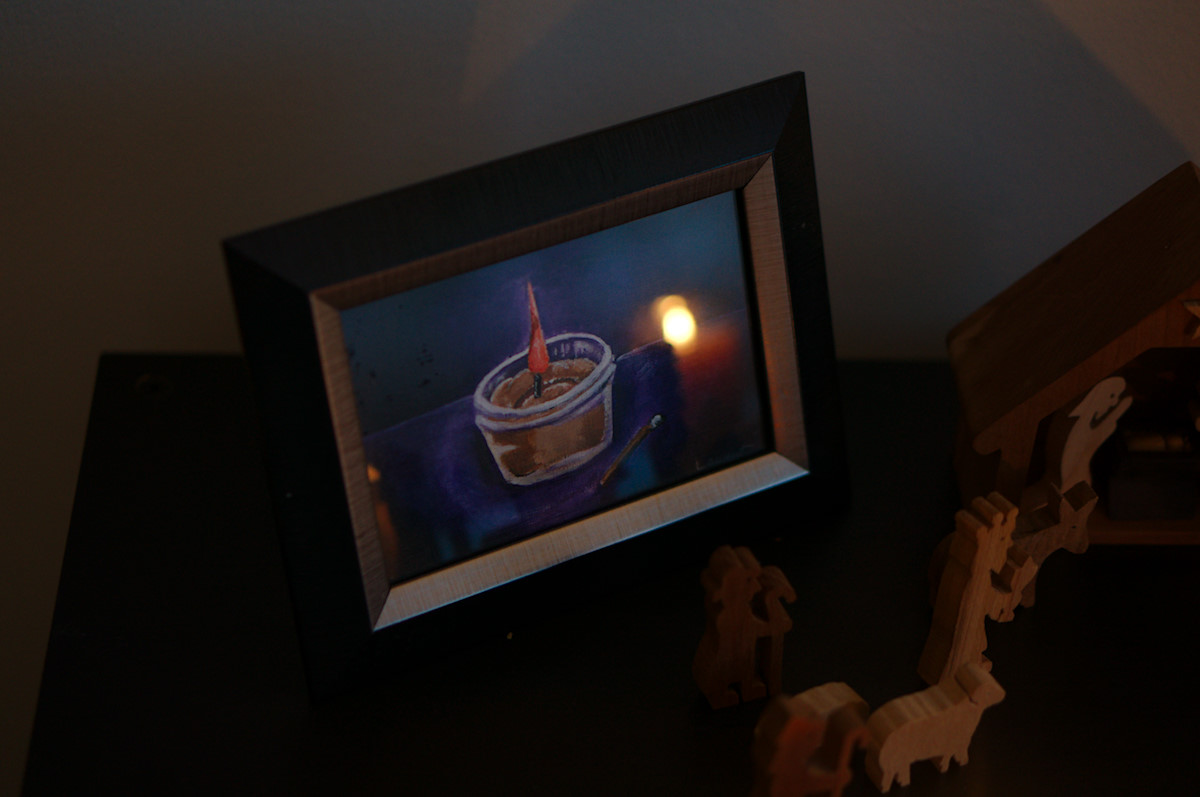
Shaia presents a convincing argument that much of our modern Christian celebration of Christmas is rooted in pagan Celtic traditions.
The details about which cultural and pre-Christian practices the Church appropriated to help tell the story of Christ in the world (was is Saturnalia or the Solstice?) aren't that important to me. What matters to me in this discussion is acknowledging the Bible doesn't dictate our Christmas traditions and rituals, and they weren't drafted by any planning committees or "The Office of Christian Culture". They were adapted and adopted from the prevailing cultures and religions at the time of their inception.
That the Church appropriated "pagan" practices doesn't bother me. This is what humans do. What bothers me is that we, Christians or other religious traditions, call those appropriated traditions sacrosanct. And then we feel the need to defend these once-appropriated traditions from being influenced and changed by the current prevailing culture!
One of the most fundamental beliefs among people who are not strict materialists (very few people are devout materialists) is that God, or a higher power, is revealed in nature. This is our first revelation of the divine.
One of the defining characteristics of being human, indeed what it means to be human, is that we find meaning in our experiences. Humans therefore created ceremony and ritual in the context of nature as a means to make sense of the world, and to appease the divine which they believed was revealed in the very elements of nature.
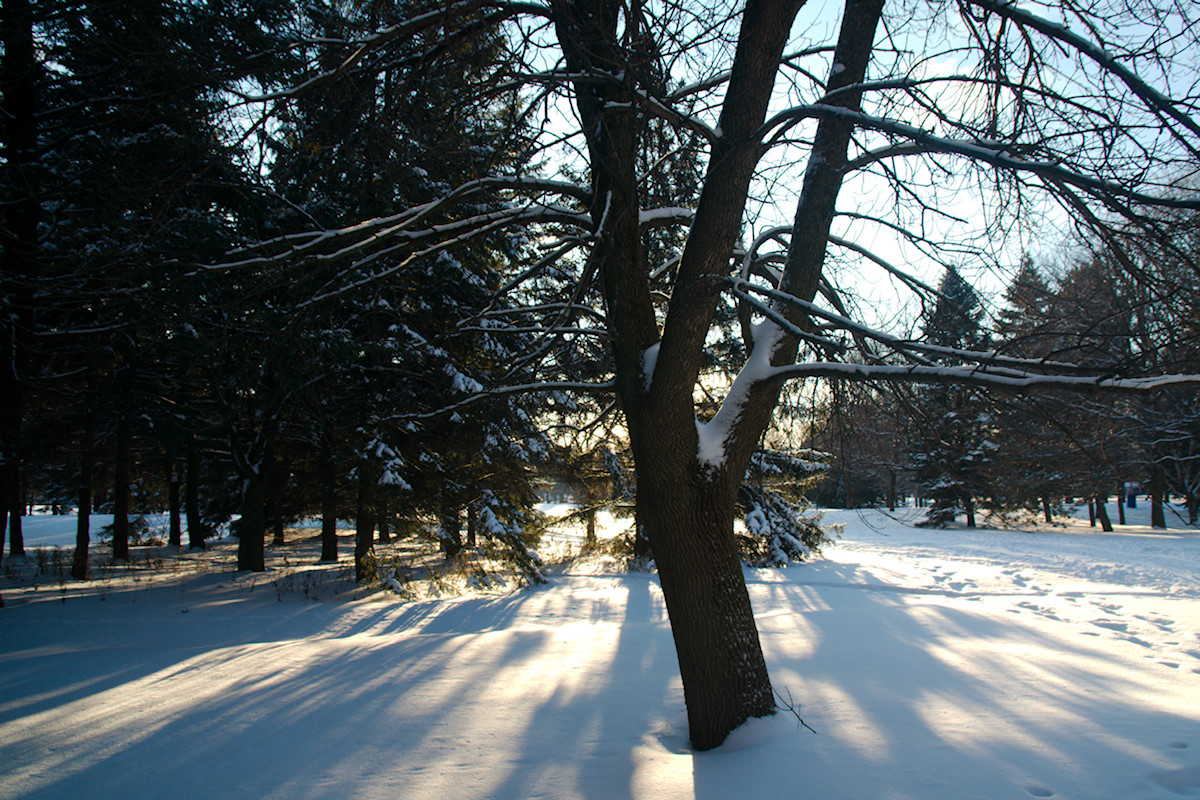
We still create ceremony and ritual, all the time, to explain life and make meaning from our experience. It doesn't necessarily look like the tree or sun worshipping tendencies of our ancestors but it's present in all aspects of society and culture: from political and corporate organizations down to families and individuals. All of it speaking this is who we are, this is how we do things, this is our meaning and purpose.
Early Christians appropriated the Celtic solstice traditions to tell the story of incarnation and Emmanuel. This is who God is. This is how God enters humanity. This is where we find meaning and purpose.
The Christians had a story to tell and needed a context in which to frame it.
The Celts were already telling a story of truth, as revealed in nature, through their own rituals: the expectant and hopeful return of light. It was the perfect metaphor for how Christians see the spirit of God in the world; and the Word became flesh, a light that shines in the darkness.
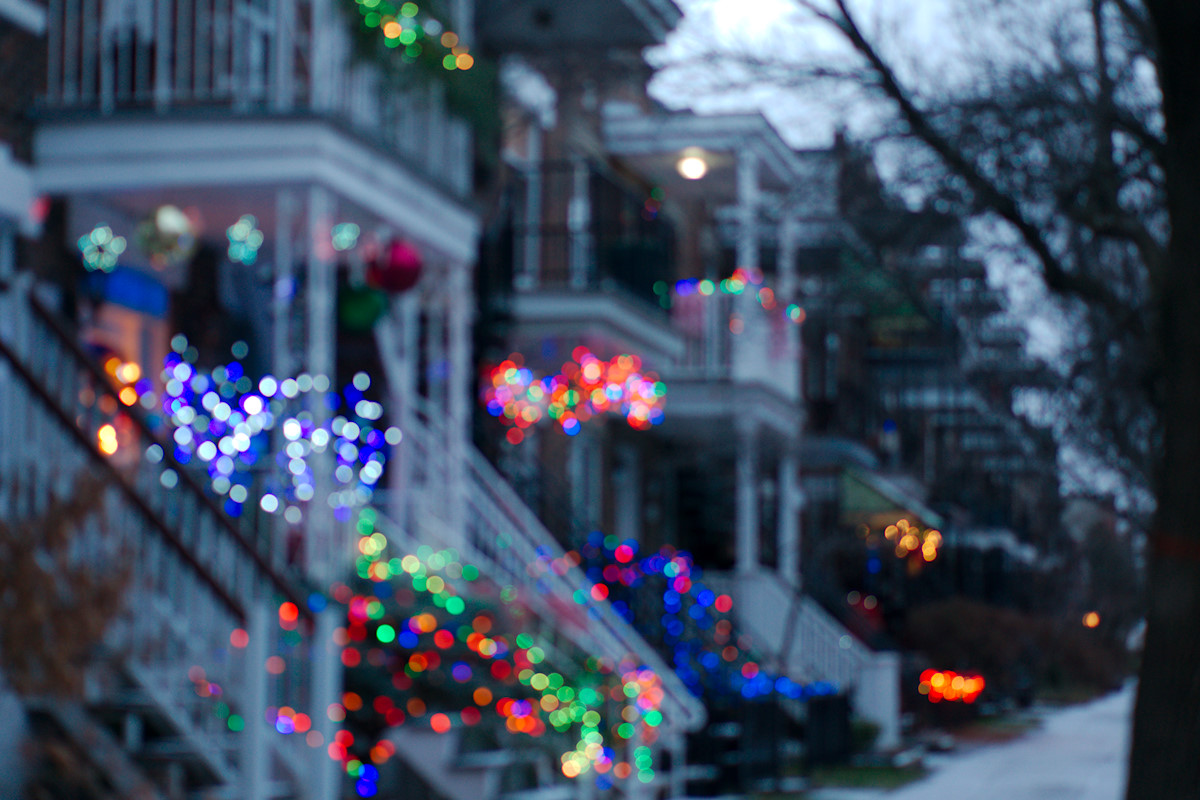
Spiritual truths are communicated in metaphor and story. We fumble around trying to give language to something that escapes exact defintion and does not hold a finite shape.
All of this is a long introduction to say it doesn't matter to me what you celebrate, or don't celebrate, at Christmas. I cringe every time I hear we need to put Christ back in Christmas, or Jesus is the reason for the Season.
I understand the sentiment. People fear losing what matters to them and our culture is absolutely shifting and changing. People feel the need to defend the faith, defend their understanding of truth, with slogans and statements.
I just don't think it's effective or necessary. Jesus does not need us to defend him or insist we all recognize the origin of Christmas. He doesn't need us to celebrate his birthday (at the wrong time of year). Jesus doesn't "need" anything from us, not even our worship. But what the world - our neighbors, our children, our families, our culture, our very earth - needs from us is that we live the Jesus message.
Divinity moves within humanity so we can live more fully, more whole, more "holy" as humans.
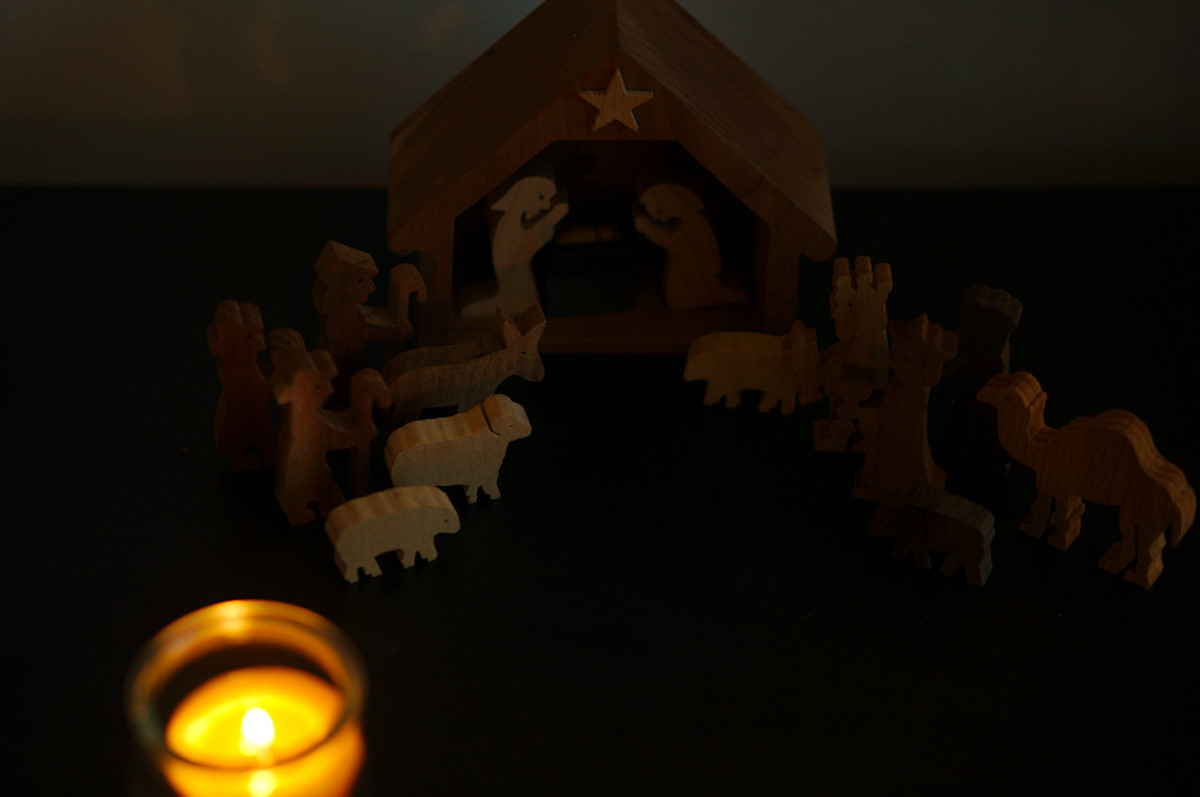
The bible tells a complex, and at times confusing and contradictory story of the Jewish people of antiquity and the first century. But one consistency in the story is the overall arc (if not exact details) of Jesus' life and message as presented explicitly in the Sermon on the Mount, in the stories of Jesus' compassion and acceptance of outsiders and the marginalized, and in his rejection of the religious hypocrisy of his culture and faith. Jesus seemed to always be saying "you missed the point" and then directing his followers back to the heart of it all.
It's ironic then, that we get our panties all in bunch about maintaining our religious traditions. Traditions inspired by the birth of a 1st century Jewish rabbi living in the Middle East, and appropriated from Celtic pagan practices of northern Europe.
Oh, this is rich! The whole thing is so human. So absurd and poignant all at once. How can you not look at us and just love us? Like the way we love toddlers in their herky-jerky movements, and children in their naivety, misprounounced words, and misunderstandings about how life works.
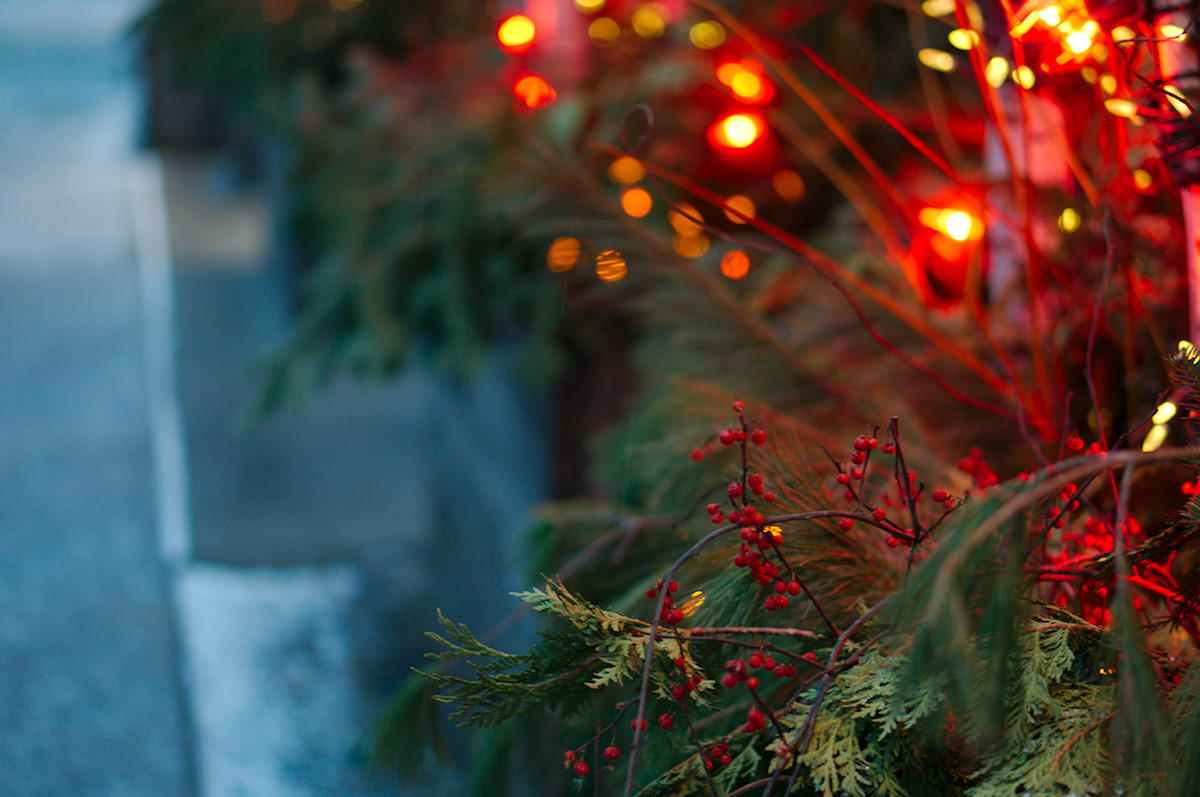
I told you I'm not doing advent this year. That's not entirely true. I'm in Spiritual Direction and right now I'm learning and practicing Gospel Contemplation. Which is a totally new way for me to experience the Bible and pray. It's been amazing. My contemplation and prayers (listening to God) for this second half of the month are walking me, imaginatively, to Bethlehem.
This year, it's Mary's experience that captivates me most in the Christmas story. I'm walking to Bethlehem with Mary.
We're tired, we don't know how its all going to work out, we're about to give birth to a baby but we don't know where, we might die in childbirth, we're still reeling from the events of the last few months, "how did I get here?"
This is what we do as humans, we look for comfort, wisdom, and companionship in story and other people's experiences. Even if that person is from a different time and culture than my own.
For me, the power of the Christmas story is how it speaks to our human condition and struggles. Our suffering and longing for relief and rescue, the smallness of an individual person in the machine of empire, the possibility of hope. The thing I celebrate this Christmas (though celebrate is an overly enthusiastic word for my temperament these days) is that God not only "dwells" with us in all our human experience but God takes form in humanity. In me, and in you. In families, in children, in babies and old people, in strangers, aliens and enemies.
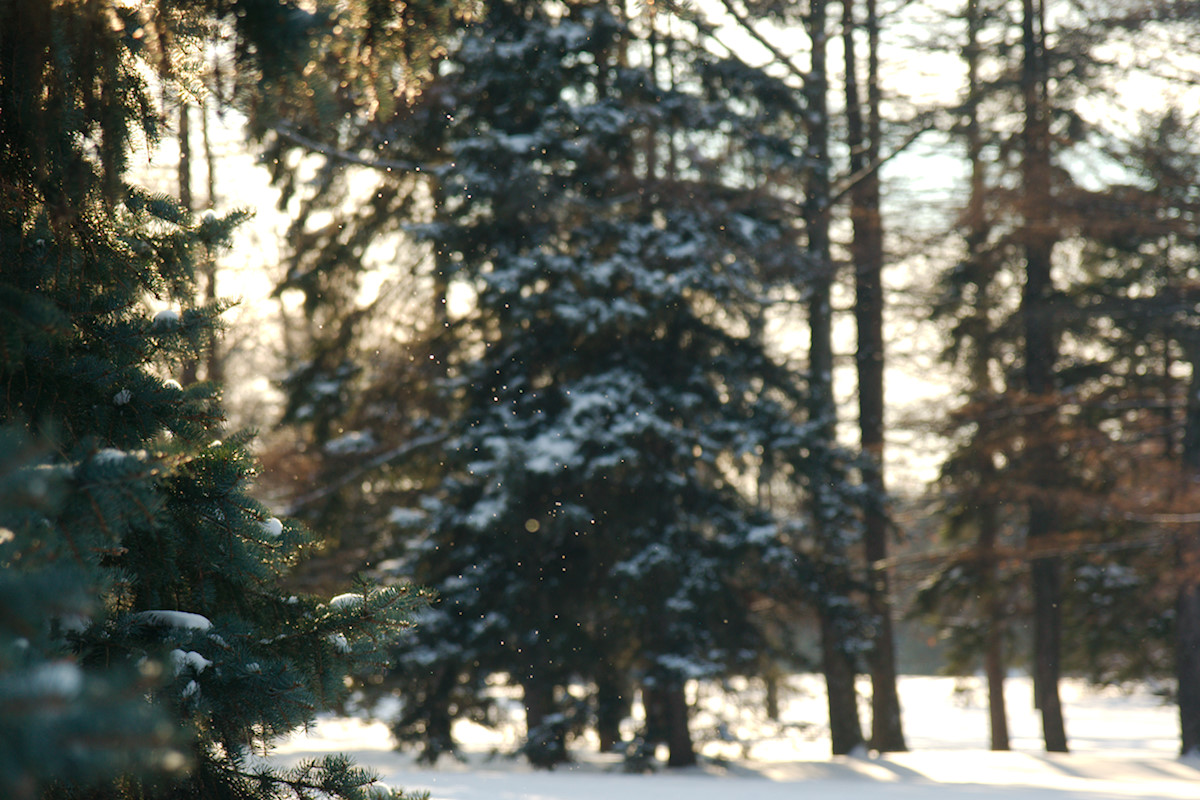
I don't care if or how you celebrate Christmas.
By "don't care" I mean I have no need for you to see the world the way I do, affirming my experiences and Christian beliefs. But what I do hope with all my heart, is that you experience love, light, and connection this season, through some ritual or practice, as a reminder of your identity, value, and meaning as a human.
If you're suffering, I want to practically pull something out from inside me (my beating heart?) to share with you in your loneliness and need. All I can pull are these words and the story of Mary to tell you that you're not suffering alone. (I had no idea how impactful Mary's story could be for me in that regard, human-to-human, woman-to-woman.)
You're in good company, the company called humanity, this family to which we all belong.
And in that awareness, of your belonging, I want you to experience Love. The big L love. I understand Love as the love of God, who inhabited the fullness of human reality - all our sorrow and joys - in Jesus the Christ. The Source of all who knows our circumscribed and often difficult existence. That's how I experience Love. In Love I want you to know Light. Light in dark places.
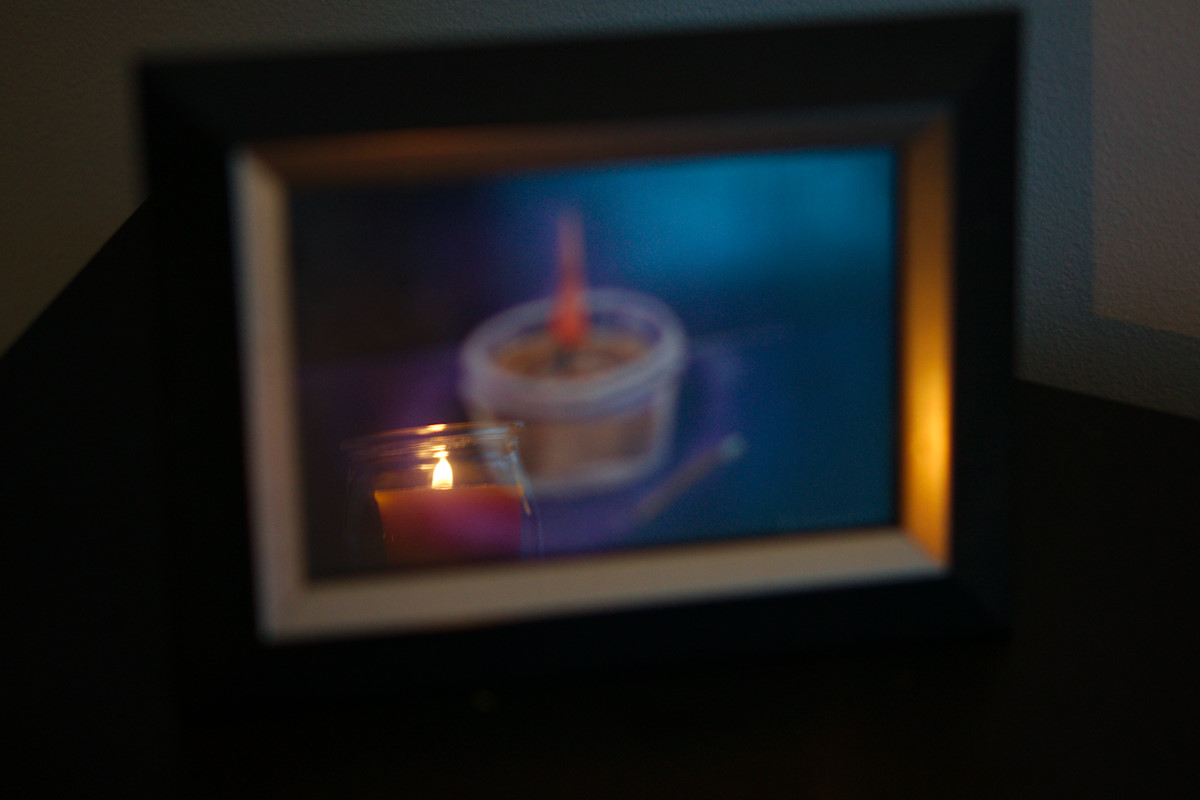
I bless and honor however that Light and Love is manifest to you this season.
Through sharing the solstice fire with your children, serving at a soup kitchen or helping with the food bank (from first hand experience I know this is a great way to feel love, to give love), singing carols, cuddling on the couch with your teen watching sappy holiday movies, belly laughing at the antics of adorable kids in Nativity plays, giving gifts, seeing Star Wars in the theater, reading stories, lighting candles, decorating a tree, eating meals with friends and strangers. All the rituals by which we humans celebrate both our humanity and divinity, our lifelong quest for belonging and relationship.
I wish you love. Merry Christmas this Solstice.
Filed Under
-

Holly on Dec. 21, 2017, 8:34 p.m.
Simply beautiful. Thank you for your perspective and your words, and Happy Solstice.
-

Analicia on Dec. 22, 2017, 5:54 p.m.
Thanks for sharing. LOVED that Alexander Shaia episode on the Mythic Power of Christmas. Listening to his Largo Christmas show right now. Happy Winter.
You can subscribe to comments on this article using this form.
If you have already commented on this article, you do not need to do this, as you were automatically subscribed.






Sarah Chepkirui on Dec. 21, 2017, 4:33 p.m.
Renee, I've been reading your blog for some time, and I don't think I've commented before. This is beautiful and moving to me - a non-Christian Quaker, who is nonetheless moved by the words and stories of the bible. I, too, have been looking for the light in all of us, particularly this year which feels so dark. Thank you for your moving and loving words.